In Henrik Ibsen's "An Enemy of the People," the narrative revolves around Dr. Thomas Stockmann, a principled physician who discovers that the waters of the town's famous spa are contaminated. Set against the backdrop of 19th-century Norway, Ibsen employs a realist style that masterfully intertwines social critique with dramatic tension. The play challenges the prevailing moral and ethical paradigms of its time, portraying the struggles of individuality against the collective conformity of society, and delving into the complexities of truth, public opinion, and social responsibility. Ibsen, often referred to as the father of modern drama, crafted this work during a period marked by industrialization and political change, which profoundly influenced his perspectives. His commitment to exposing societal hypocrisies and championing the individual's moral struggles is evident in this play. The personal experiences and ethical dilemmas he faced, along with his critical stance against the bourgeois propriety of his era, fueled his exploration of the tensions between self-advocacy and communal pressure. "An Enemy of the People" is an essential read for those interested in the intersections of morality, politics, and individualism. Ibsen's profound insights and enduring relevance make this work a compelling examination of the human spirit, inviting readers to contemplate the precarious balance between truth and social welfare. This timeless drama continues to resonate, urging us to remain vigilant against the consequences of collective apathy.
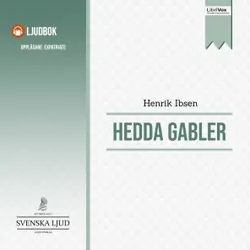
Hedda Gabler
Henrik Ibsen
audiobookbook
Brand
Henrik Ibsen
book
50 Timeless Masterpieces (Volume 1) : Essential Classics for a Rich Literary Journey
Homer, Sun Tzu, Plato, Dante, Shakespeare, Miguel de Cervantes, John Milton, Daniel Defoe, Johann Wolfgang von Goethe, Jane Austen, Nikolai Gogol, Emily Brontë, Mary Shelley, Alexandre Dumas, Fyodor Dostoevsky, Charles Dickens, Victor Hugo, Nathaniel Hawthorne, Gustave Flaubert, Leo Tolstoy, Henrik Ibsen, Herman Melville, Mark Twain, Robert Louis Stevenson, Arthur Conan Doyle, Raymond Chandler, H. G. Wells, Joseph Conrad, Rudyard Kipling, Louisa May Alcott, L. Frank Baum, L. M. Montgomery, T. S. Eliot, Franz Kafka, James Joyce, Virginia Woolf, C. S. Lewis, Ernest Hemingway, Walt Whitman, Jack Kerouac, John Steinbeck, William Faulkner, Kate Chopin, Zora Neale Hurston, Margaret Mitchell, Sylvia Plath, Thomas Mann, Albert Camus, George Orwell
book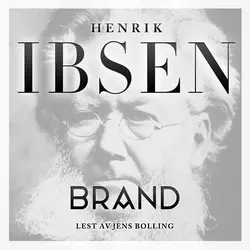
Brand : et dramatisk dikt
Henrik Ibsen
audiobook
180 Masterpieces You Should Read Before You Die (Vol.2) : Life is a Dream, The Awakening, Babbitt, Strange Case of Dr Jekyll and Mr Hyde, Sense and Sensibility, A Tale of Two Cities, Dubliners, A Doll's House,Anne of Green Gables, The Hunchback of Notre Dame, Iliad & Odyssey...
Virginia Woolf, P. B. Shelley, Henrik Ibsen, Charles Dickens, James Joyce, Leo Tolstoy, Ford Madox Ford, E. M. Forster, Honoré de Balzac, Jane Austen, L. M. Montgomery, Kenneth Grahame, Rabindranath Tagore, George Weedon Grossmith, F. Scott Fitzgerald, Daniel Defoe, Jules Verne, Jonathan Swift, James Fenimore Cooper, George MacDonald, J. M. Barrie, Alexandre Dumas, Homer, Benito Pérez Galdós, Dante, William Dean Howells, Kakuzo Okakura, Gustave Flaubert, Victor Hugo, Stendhal, John Buchan, Edgar Wallace, William Walker Atkinson, Émile Coué, G. K. Chesterton, D.H. Lawrence, George Bernard Shaw, Joseph Conrad, Walter Scott, Anthony Trollope, Emile Zola, Theodor Storm, Harriet Beecher Stowe, Nathaniel Hawthorne, Henry Fielding, Jerome K. Jerome, Laurence Sterne, Thomas Hardy, Willa Cather, Edith Wharton, Kate Chopin, Sinclair Lewis, W. Somerset Maugham, Henry James, Ivan Turgenev, Nikolai Gogol, Pedro Calderon de la Barca, Johann Wolfgang von Goethe, Benjamin Franklin, Bankim Chandra Chatterjee, Edgar Allan Poe, Willkie Collins, Ann Ward Radcliffe, Bram Stoker, Gaston Leroux, H. G. Wells, Lewis Wallace, Washington Irving, Machiavelli, Fyodor Dostoyevsky, Confucius, Laozi, John Milton, W. B. Yeats, Elizabeth von Arnim, Cao Xueqin
book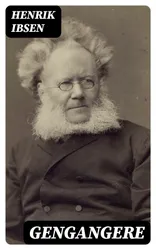
Gengangere
Henrik Ibsen
book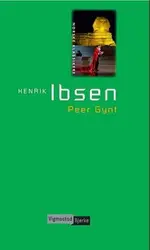
Peer Gynt : et dramatisk dikt (1867)
Henrik Ibsen
book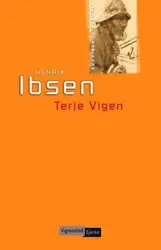
Terje Vigen
Henrik Ibsen
book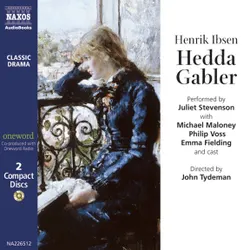
Hedda Gabler
Henrik Ibsen
audiobook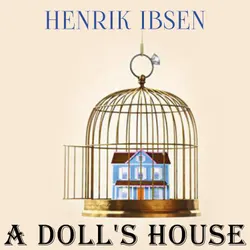
A Doll's House
Henrik Ibsen
audiobookbook
The Best of the Playwrights: Tragedies and Comedies by the Masters
Euripides, Sophocles, Aeschylus, William Shakespeare, Henrik Ibsen, Anton Chekhov, Bernard Shaw
audiobook
A Doll's House (Unabridged)
Henrik Ibsen
audiobook
